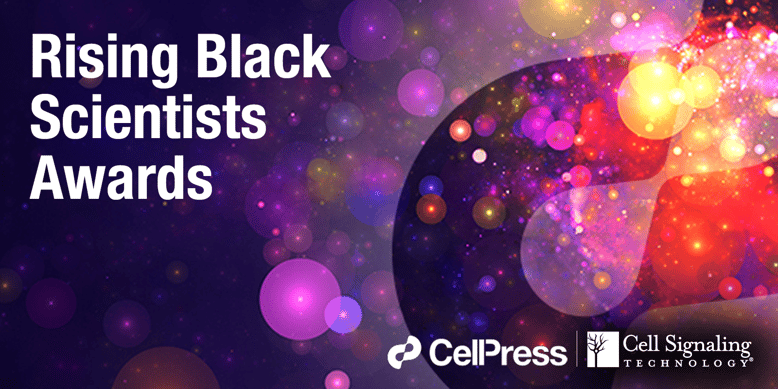The Rising Black Scientists Awards were created by Cell Signaling Technology and Cell Press in 2020 to break down barriers and create opportunities by providing funds to support professional development for African Americans studying life science. If this is your first time hearing about it, the first annual award provided a $10,000 prize and $1,000 in scientific materials to two young Black scientists in the US: one undergraduate and one graduate/post-doctoral scholar. Cell Press and Cell Signaling Technology together hope that this can be an impactful, change-making annual event.
Cell Press caught up with the recipients undergraduate Fola Olusanya (FO) of Howard University and postdoctoral fellow Chrystal Starbird (CS) of Yale University and asked how being a Rising Black Scientist has affected them and to see if they had any advice for future applicants.

What was most rewarding about winning the Rising Black Scientists Award?
CS: While there were numerous benefits to winning this award, including being published in and working with the wonderful team at Cell, I find comments from more junior scientists about how my story impacted them the most rewarding. To me, that is the most wonderful thing about this award, that the visibility and the opportunity to speak your truth may uplift others who have similar stories and let them know that they are not alone and that they too have a place in science.
FO: There were so many amazing things that came out of winning this award, especially being published in Cell, but the most rewarding aspect was the connections I was able to make with other amazing Black scientists who enjoyed my essay. Their kind words reaffirmed my decision to pursue science.
How have you been able to use the award to advance your science?
FO: I have been able to use this award to fund my transition to my Microbiology PhD program at NYU, including travel and my housing deposit.
CS: Having this award increased my visibility within the scientific community and led to numerous job offers, both inside and outside of academia. While I am not yet at a stage to entertain offers, it created new connections that are likely to be beneficial as I advance in my career. I was also able to use the funds to directly support my science and to have a bit more freedom in the direction I take my research in the lab.
What do you hope the award can do for future winners?
CS: I hope that future winners can also see the positive impacts of having their voices amplified, both for themselves and for their community. I also hope future winners have opportunities to receive mentorship and support from peers more advanced in their careers.
FO: Aside from the financial benefit of the award, I hope that future winners gain confidence in their abilities as communicators.
Do you have any advice for future award applicants?
FO: My advice to future applicants is: be willing to tell your story in a way that feels natural to you. Don’t try to fit into a box or follow anyone’s template of what “good writing” is. Write what feels right!
CS: Speak your truth. Quite frankly, when I wrote my essay I thought it was a bit too honest, but I also thought these were some of the experiences I most wanted to speak about. I was encouraged that I won not just because it's a wonderful award, but because it signified to me that Cell was ready and willing to listen to our stories.
Learn More About the Rising Black Scientist Awards
Read the award-winning 2020 essays by Chrystal Starbird and Fola Olusanya at Cell Press.
If you think “Rising Black Scientist” describes you, Cell Signaling Technology and Cell Press would love the opportunity to prove you right. To quote Dr. Starbird, “speak your truth” and describe why you should be next: Apply today.
Update: Through an additional partnership with the Elsevier Foundation, the Rising Black Scientist Awards now recognizes four awardees — two undergraduate students and two graduate students/postdoctoral scholars, as well as four honorable mentions — two undergraduate students and two graduate students/postdoctoral scholars. Winners receive a $10,000 award and $500 in travel funds, and honorable mentions receive $500. Visit Cell Press for more information.


